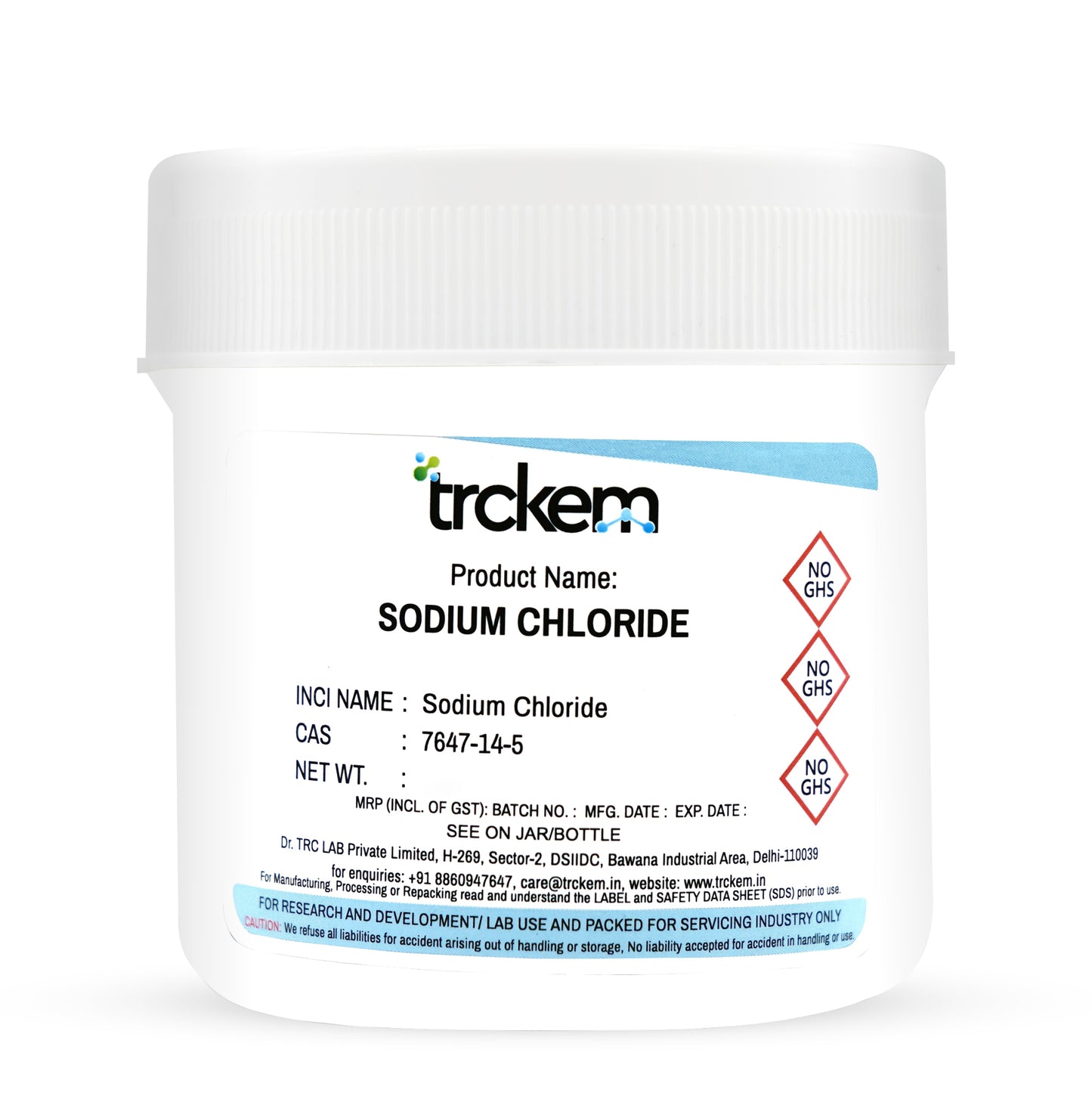
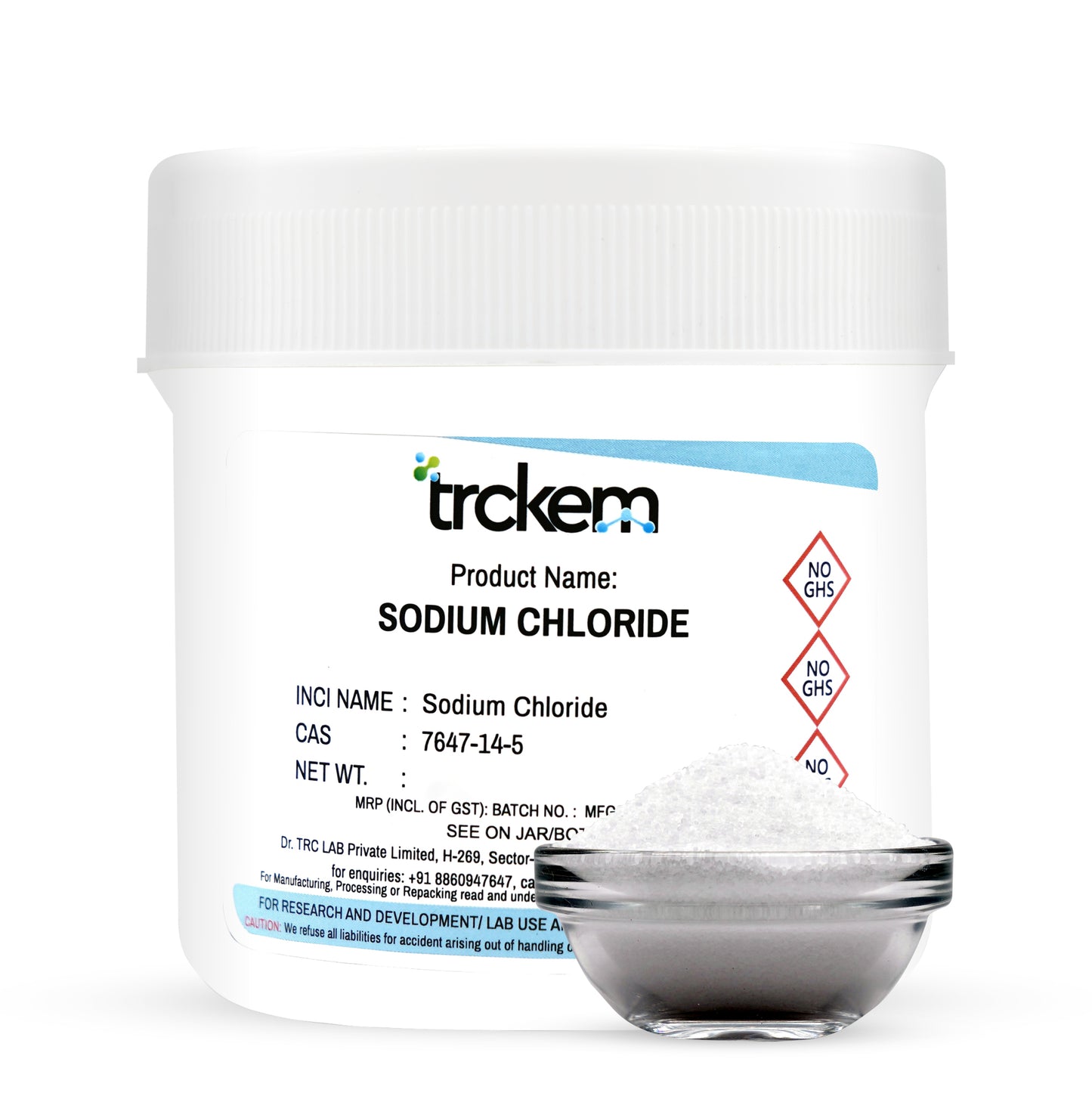
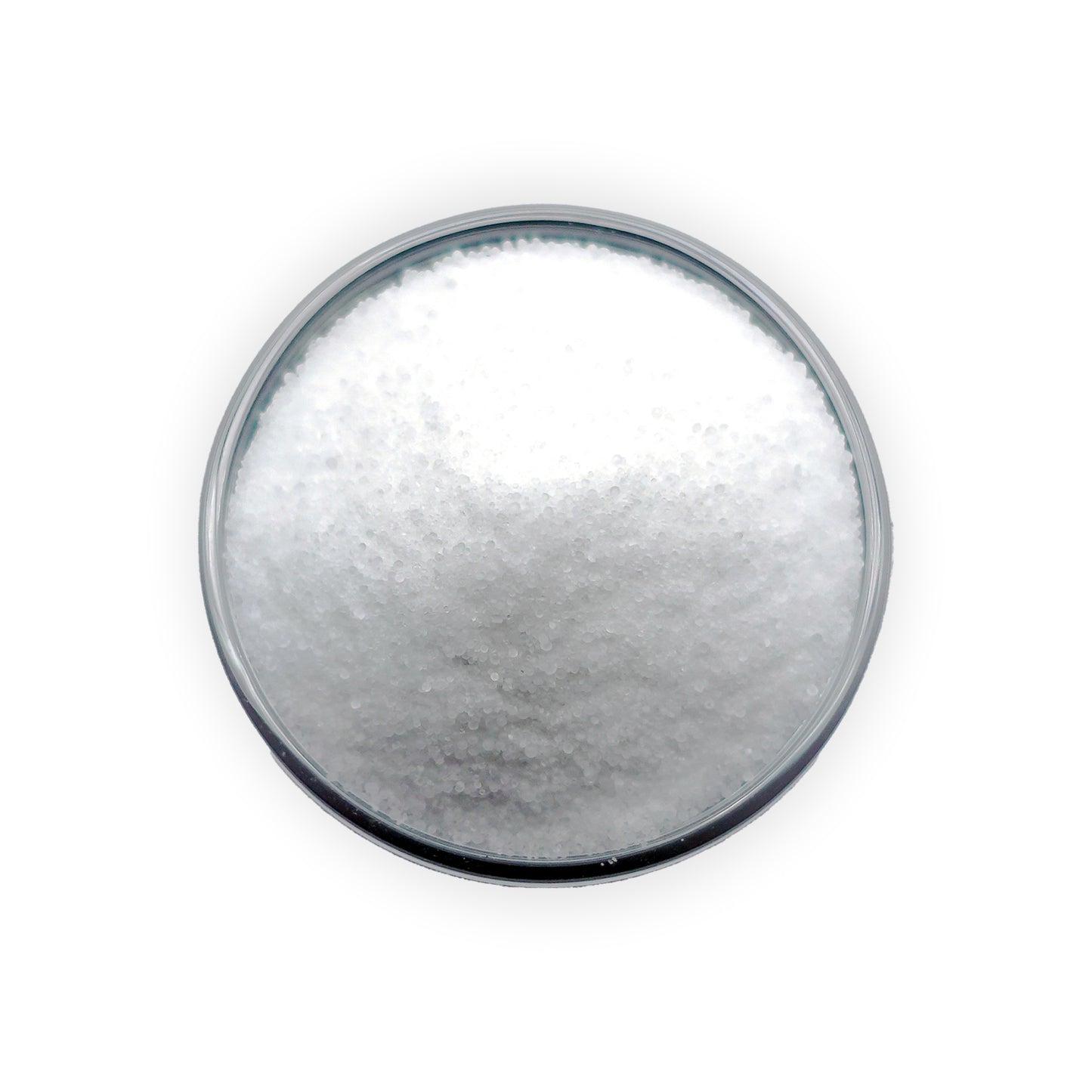
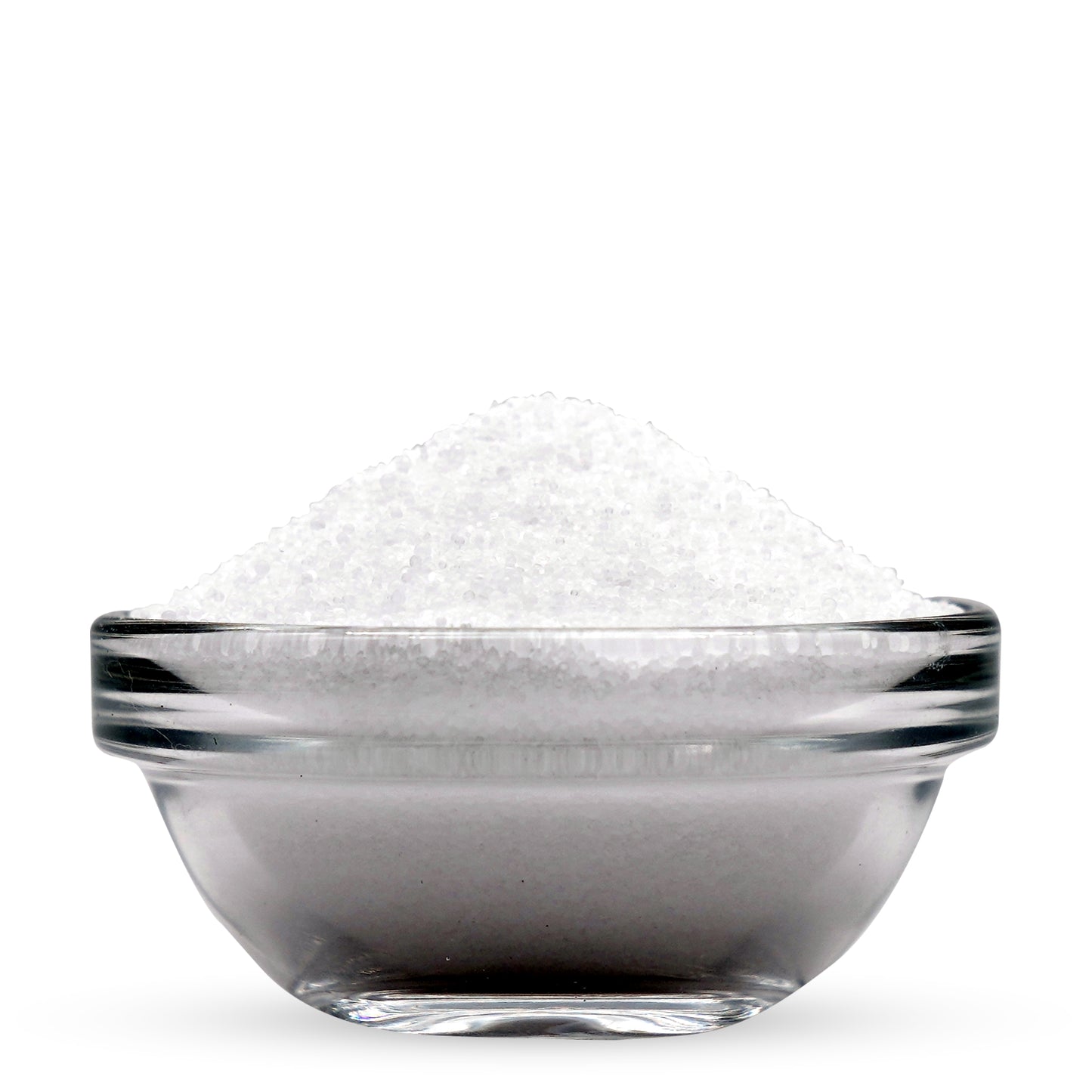
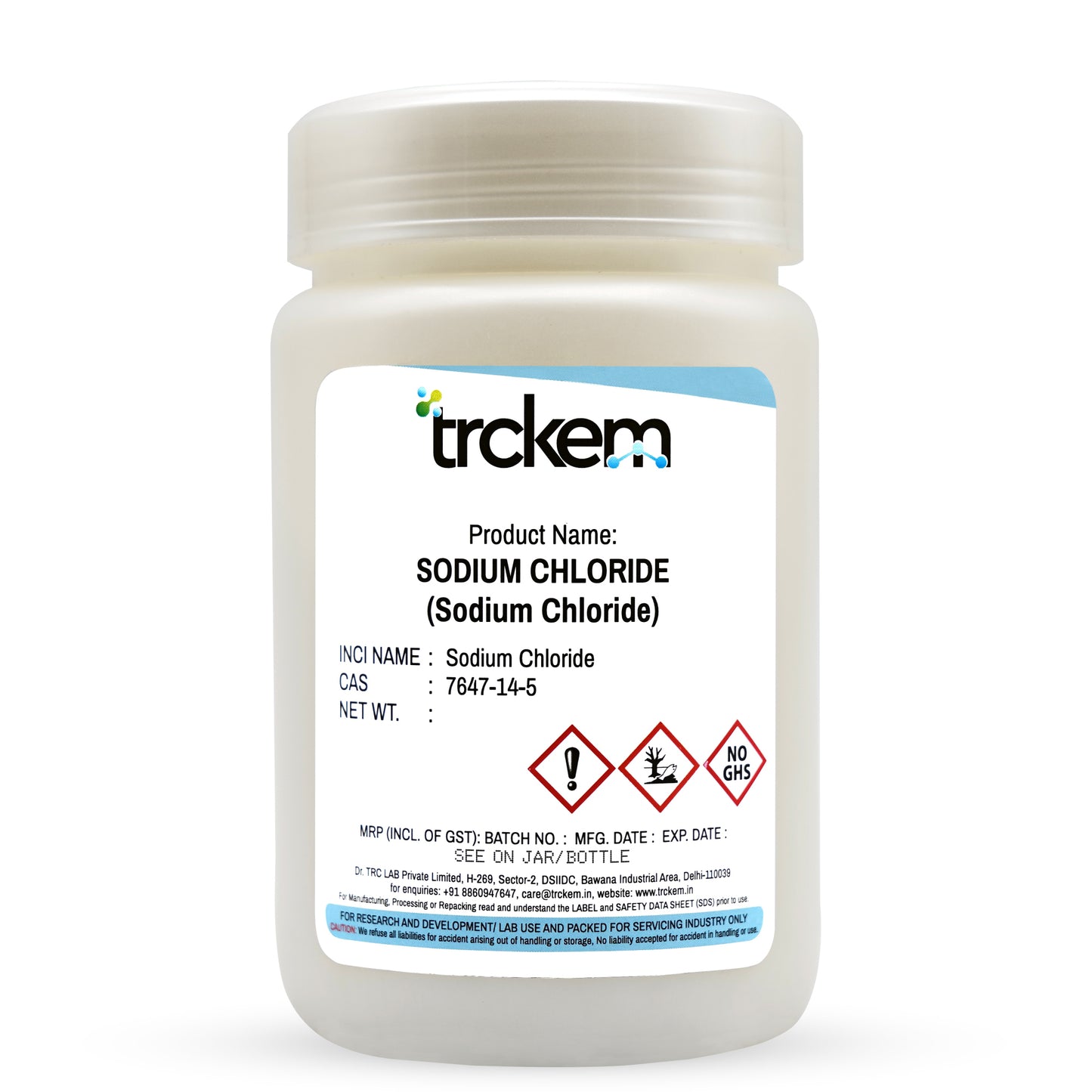
General Description:
Sodium chloride, commonly known as table salt or halite, is an essential mineral compound with the chemical formula NaCl. It is typically found in crystalline form and is odorless, soluble in water, and taste salty. In the cosmetic industry, sodium chloride serves several functions beyond its culinary uses.
Uses in the Cosmetic Industry:
Sodium chloride serves several purposes in cosmetics:
- Viscosity Modifier: It is used as a viscosity modifier to adjust the thickness and flow properties of cosmetic formulations such as shampoos, conditioners, and body washes. Sodium chloride can increase the viscosity of these products, providing a more desirable texture and enhancing their performance.
- Abrasive Agent: In exfoliating scrubs and cleansers, sodium chloride acts as an abrasive agent to help physically remove dead skin cells and impurities, leaving the skin smooth and refreshed.
- Texture Enhancer: Sodium chloride can enhance the texture and consistency of emulsions and creams, improving their spreadability and application.
- Preservative: In some formulations, sodium chloride can act as a preservative by inhibiting the growth of microorganisms, although its effectiveness in this role is limited compared to other preservatives.
Hazard:
While sodium chloride is generally recognized as safe for cosmetic use, there are a few considerations:
- Skin Irritation: High concentrations or prolonged exposure to sodium chloride can potentially cause skin irritation, especially in individuals with sensitive skin or conditions like eczema.
- Eye Irritation: Direct contact with sodium chloride powder or solutions can irritate the eyes. Safety precautions should be taken during handling to avoid eye exposure.
- Drying Effect: Sodium chloride can have a drying effect on the skin and hair, particularly in individuals with already dry or sensitive skin. It is essential to use moisturizing products after exposure to sodium chloride-containing cosmetics.
- Environmental Impact: Sodium chloride is widely abundant in nature and generally considered environmentally benign. However, excessive discharge into water bodies can alter salinity levels and affect aquatic ecosystems.
- Regulatory Compliance: Cosmetic-grade sodium chloride must comply with regulatory standards set by authorities such as the FDA in the United States and the European Commission. Maximum allowable concentrations and purity levels are specified to ensure consumer safety.
CAS Number: 7647-14-5
INCI: Sodium Chloride
Composition: Sodium chloride consists of sodium ions (Na+) and chloride ions (Cl-), arranged in a cubic crystal lattice structure.
Purity Grade: No purity grade applicable
Appearance: Sodium chloride appears as white, odorless crystals or granules.
Solubility: Sodium chloride is highly soluble in water, forming a clear, colorless solution. Its solubility decreases with decreasing temperature.
Preservation: Sodium chloride does not require special preservation. It should be stored in a dry environment to prevent clumping and caking.
Storage: Store in a closed container at a dry place at room temperature
Raw Material Source : Sodium chloride is primarily sourced from salt mines or obtained through the evaporation of seawater.
Manufacture: Sodium chloride can be manufactured through various methods including mining salt deposits, evaporating seawater in salt pans, or extracting salt from brine by solution mining.
Animal Testing: Not animal tested
GMO: GMO-free (does not contain plant-derived components)
Vegan: Does not contain animal-derived components
Proposition: SODIUM CHLORIDE complies with relevant regulations and guidelines
Warning: Avoid contact with eyes. In case of contact, rinse thoroughly with water. Use appropriate protective equipment when handling. Keep out of reach of children.
Formulator’s Queries, We Answered
1. What is Sodium Chloride? What is its CAS number and INCI name?
CAS Number: 7647-14-5
INCI Name: Sodium Chloride
Sodium Chloride, also known as common salt or table salt, is an inorganic ionic compound with chemical formula NaCl
2. Why is Sodium Chloride used in personal care and cosmetic products?
Sodium Chloride is a multifunctional ingredient in cosmetics. It is used as a thickener (viscosity modifier), binder, mild abrasive, and as a bulking or stabilizing agent
3. What types of personal care products commonly use Sodium Chloride?
Typical products include shampoos, shower gels, body washes, facial and body scrubs, bath salts, toothpaste and oral-care preparations — wherever cleansing, exfoliation, viscosity control or mild abrasive action is desired
4. What benefits does Sodium Chloride bring to formulations?
Viscosity control / thickening — helps adjust the flow and texture of surfactant-based products (e.g. shampoos, gels).
Mild exfoliation / cleansing — cubic salt crystals can act as a gentle mechanical exfoliant in scrubs and cleansers.
Binder / bulking agent — helps stabilize and hold together ingredients in solid or semi-solid products.
Oral care support — used in toothpastes and mouthwashes as a mild abrasive and cleansing aid.






